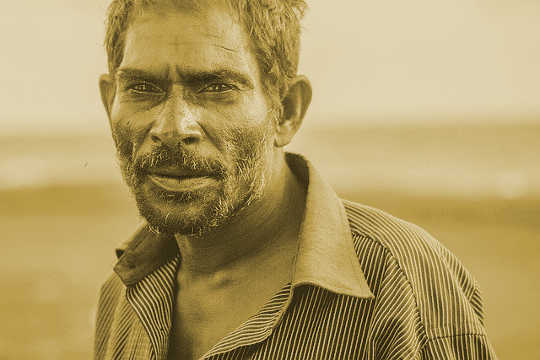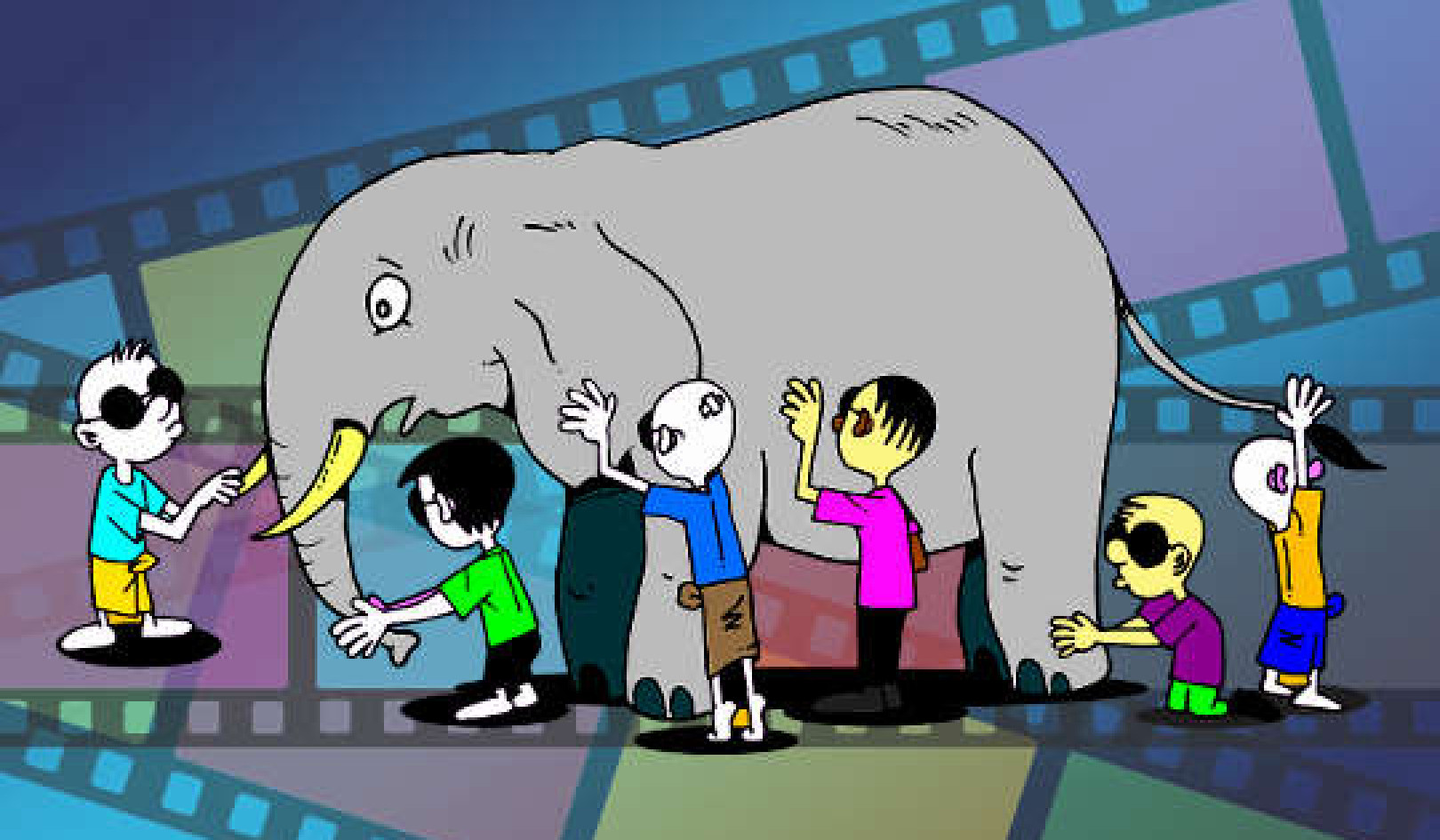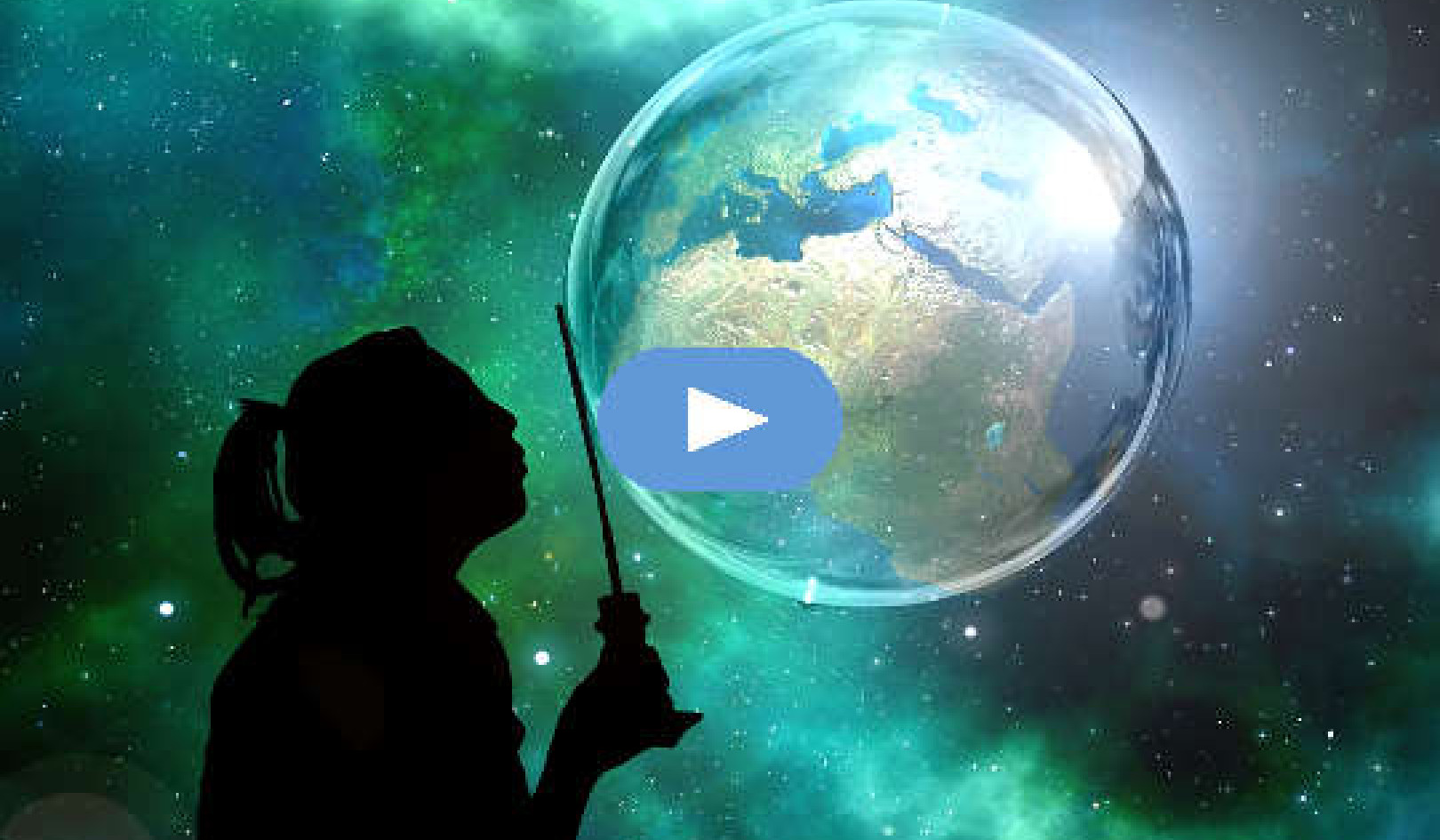
图片由 维达夏纳·拉特纳亚卡
如果您想让别人感到幸福,请同情。
如果您想快乐,请练习同情心。
- 达赖喇嘛, 冥想的治疗能力
The most difficult act of bravery is often kindness.最勇敢的行为往往是善良。 A veteran career firefighter and I were walking out of the gym.一位经验丰富的职业消防员,我正走出体育馆。 As we turned to go to our cars, we noticed a man on the ground, apparently drunk, lying against the curb in the parking lot.当我们转身去开车时,我们注意到一个地上的人,显然是喝醉了,躺在停车场的路边。 It was one of those city locations where drunks and the homeless congregate.那是醉酒和无家可归者聚集的城市之一。 He had tangled, long dark hair and a beard with a touch of gray.他纠结着长长的黑发,留着淡淡的灰色胡须。 He was dressed in old jeans, tennis shoes, and a jacket, with a thin blanket around his shoulders.他穿着旧牛仔裤,网球鞋和夹克,肩膀上盖着一条薄毯。
“老兄,”他用一种非判断性的,温柔的声音说。 “如果你在这里睡觉,你会受伤的。” He helped the man to his feet, and the man continued on his way.他帮助那个男人站起来,那个男人继续前进。
In his career, my friend had encountered hundreds of drunks.在他的职业生涯中,我的朋友曾遇到过数百次醉酒。 I would not have been surprised if he had just rolled his eyes, his compassion withered.如果他只是翻了个白眼,同情心枯萎了,我不会感到惊讶。 But he didn't;但是他没有; he was kind and compassionate.他善良而富有同情心。
这就是实践:小小的善举。
There are a hundred reasons not to help a stranger passed out in a parking lot.有一百个理由不帮助陌生人在停车场昏倒。 It's potentially dangerous.有潜在的危险。 The person might be “crazy,” have a communicable disease, or smell.该人可能“疯了”,患有传染病或闻到气味。 The situation isn't our problem, we're busy and don't have time, and so on.情况不是我们的问题,我们很忙,没有时间,依此类推。
尽管如此,我的朋友还是伸出了援助之手,并以温柔的言语表达。
睁大眼睛痛苦
Becoming a firefighter opens your eyes to suffering.成为一名消防员会让您的眼睛受苦。 And it is not “drive-by” awareness.这不是“过路”意识。 We are immediately engaged in the human drama;我们立即参与了人类戏剧。 the blood, the tears, the goop, the smells, and the pain that emanates on the street.血液,眼泪,黏糊糊,气味和街道上散发出的痛苦。
这是变革性的。
We learn that everyone has suffered, everyone has a story.我们了解到每个人都受苦,每个人都有一个故事。 Some of those stories, well, you wonder how an individual can still be standing.这些故事中的一些,好吧,您想知道一个人如何仍能站立。 There was the elderly woman who lived alone, all her belongings packed up and labeled, ready to die, but with no one to talk to except us.有一个人独自生活的老妇,她所有的财产都收拾好并贴上标签,准备死了,但是除了我们以外,没有人可以和他说话。 The stressed-out professional couple, caring for a father with Alzheimer's who bolted one night;压力重重的专业夫妇,与阿尔茨海默氏症的父亲照料了一个晚上。 when we found him walking down the road, he told us he was going home to Cleveland.当我们发现他走在路上时,他告诉我们他要去克利夫兰。
每个人都有一个故事
The understanding that everyone suffers changes your perception.每个人都遭受痛苦的理解会改变您的看法。 You see individuals as more complex, sometimes as wounded, often as struggling with their own demons.您会看到个人变得更加复杂,有时甚至受了伤,经常在自己的恶魔中挣扎。 But being moved by people's stories doesn't necessarily translate into doing something.但是,被人们的故事所感动并不一定意味着要做某事。 Empathy doesn't always translate into compassion, into action.同情并不总是转化为同情或行动。
Being a firefighter, our job is not just to understand, but to help.作为一名消防员,我们的工作不仅是理解,而且是提供帮助。 Our profession is defined by kindness in action, which is transformative.我们的职业是由行动中的善良来定义的,这具有变革性。
How?怎么样? Start by asking the question, What do firefighters get out of it?首先问一个问题,消防员从中得到什么? In the bigger picture, what do any of us get out of being kind?从更大的角度看,我们每个人从善良中得到什么? It's a fair question.这是一个公平的问题。 Altruism sounds nice, a high and lofty goal, but day to day, in the midst of our busy lives, why be kind?利他主义听起来不错,是一个崇高而崇高的目标,但是在我们忙碌的生活中,每天都为什么要友善? Why make eye contact with the guy begging on the corner?为什么和那个在角落乞讨的家伙发生眼神交流? Why risk life and limb to save someone from a fire?为什么冒着生命危险和肢体冒险救人?
Even ancient religions and philosophies struggle to answer this question, which boils down to: Why put someone else's interests above your own?甚至古老的宗教和哲学也难以回答这个问题,这个问题归结为:为什么将别人的利益放在自己的之上? I'm not interested in any rewards in an afterlife.我对来世的任何回报都不感兴趣。 What are the practical rewards right now, here, on this planet, in this lifetime?在这个星球上,在这一生中,现在有什么实际的回报?
选择同理心
Imagine this situation.想象一下这种情况。 You're stuck in traffic and late getting home.您的路况很拥堵,回家晚了。 You're creeping along when all of a sudden the guy in the car behind you starts banging on his horn and flashing his headlights.当您后面的车上的那个家伙突然撞到他的喇叭并闪烁着大灯时,您正在爬行。 You ignore this for a minute, but then you get upset.您忽略了片刻,但随后却感到不高兴。 The honking and flashing continue, even though traffic has come to a complete stop.即使交通已经完全停止,鸣叫和闪烁仍在继续。 Other drivers are staring.其他司机在盯着。 Finally, you've had enough.最后,您已经受够了。 Angry, you get out of your car to confront the jerk pounding his horn.生气了,您下车面对对角猛打的混蛋。 Before you can say anything, the driver rolls down his window.在您无话可说之前,驾驶员会滚下窗户。 He is in tears, sobbing.他在流泪,哭泣。 He cries, “My son was in an accident.他哭着说:“我儿子出事了。 They've taken him to the hospital.他们带他去了医院。 He's going into surgery!他要去做手术! I need to get to him.我需要去找他。 If you just move aside, I can reach the off-ramp.”如果您只是移开,我可以到达下坡道。”
In an instant, you change.瞬间,您就改变了。 You tell him, “Follow me!”您告诉他,“跟我来!” Back in your car, you lead him onto the shoulder, onto the off-ramp, and bang your own horn as you race together to the hospital.回到您的车中,您将他带到肩膀上,驶入匝道上,并在您共同奔赴医院时敲响自己的号角。
发生了什么事?
This is the empathic shift.这是移情的转变。 Without much thought, you put yourself in someone else's shoes;不加思索,您就把自己放在别人的鞋子上。 their son could be your child, hurt and alone in a hospital.他们的儿子可能是您的孩子,受伤,独自一人在医院里。 Your worries about being late drop away and all you care about is helping this stranger.您担心会迟到,而您所关心的就是帮助这个陌生人。
Later, after the adrenaline rush is gone, you realize it feels good to help someone.后来,在肾上腺素急流消失之后,您意识到帮助某人感觉很好。 It feels good to be needed and provide tangible help.需要并提供切实的帮助感觉很好。 It feels important to momentarily put aside your own concerns and be there for someone who is struggling or in danger.暂时搁置自己的疑虑,并为陷入困境或处于危险中的人们提供帮助,这很重要。 Ask any first responder, and they will describe a feeling of expanded presence;询问任何第一响应者,他们将描述扩大存在的感觉; for a moment, they are involved in something larger than themselves.有一瞬间,他们参与到了比自己更大的事情中。
This is the reward.这是奖励。 This is the answer to the question.这就是问题的答案。 The的 行动 同情心释放出强烈的联系,同理心,满足感和喜悦感。
帮助他人:做事,帮助,采取行动
The experience of people suffering is transformative.人们遭受苦难的经历具有变革性。 The action of helping is transformative squared帮助的作用是变革的平方.
Helping takes many forms.帮助有多种形式。 We write checks to charities;我们向慈善机构开具支票; we sign petitions.我们签署请愿书。 But directly touching someone else, knowing you've made a specific difference in someone's life, is the most powerful.但是,直接接触他人,知道您对某人的生活有特殊的改变,才是最有力的。 The great radical thinker, Jesus, didn't isolate himself in the temple and pontificate;伟大的激进思想家耶稣并没有把自己孤立在圣殿里,而是崇高的。 he went among the people and washed the feet of lepers.他走到人民中间,洗了麻风病人的脚。
Doing.在做。 Helping.帮助。 Taking action.采取行动。 These are the verbs that truly make a difference.这些是真正起作用的动词。
Daily, we have opportunities to be kind in all sorts of ways.每天,我们都有机会以各种方式变得友善。 Holding a door open, allowing another driver to turn first, comforting someone in pain, giving up our seat on a bus — all small acts of kindness that can ripple out and give us the feeling of making a difference.敞开车门,让另一个驾驶员先转弯,在痛苦中安慰某个人,放弃我们在公共汽车上的座位-所有细微的善举都会波及并给我们带来改变的感觉。
Truthfully, on the fire department, most of what we do are small acts of kindness.诚然,在消防部门,我们所做的大部分都是小小的善举。 On a call, firefighters commonly find small ways to help.在通话中,消防员通常会找到帮助的小方法。 They shovel a driveway for someone with chest pains, they help find scared animals after a fire, they put the furniture back.他们为胸痛的人铲车道,在大火后帮助找到害怕的动物,将家具放回原处。 Nothing heroic.没什么英雄。 But it is what people remember.但这是人们记住的。 Except for ten-year-old kids, most people remember the little things, not the big red trucks with lights and sirens.除了十岁的孩子,大多数人都记得那些小东西,而不记得有灯光和警报器的大红色卡车。
善良杀手
There are obstacles — kindness killers — that interfere with the impulse to be kind.有障碍-善良杀手-干扰了善良的冲动。 Three of them are the most worrisome and common.其中三个是最令人担忧和常见的。
首先是公义。 Once we responded to a rollover on a snowy January road.一旦我们对一月下雪的大路上的翻车做出了回应。 We got there to find the driver was drunk but unhurt, while his girlfriend was dead, having been ejected from the SUV.我们到那里发现司机醉了,但没有受伤,而他的女友死了,因为他被逐出了SUV。 I remember cracking, losing my temper.我记得自己发脾气,发脾气。 I felt a wave of righteous anger that eliminated even the idea of feeling kindness or compassion for the driver.我感到一阵正义的愤怒,甚至消除了对驾驶员感到友善或同情的想法。
Yet when I went home, I couldn't help but remember when I was eighteen.但是当我回到家时,我不禁想起了我十八岁的时候。 My girlfriend and I were driving home in a storm.我和我的女朋友在暴风雨中开车回家。 We'd both had a beer.我们俩都喝了啤酒。 I lost control of the car, and we did a 360 on the interstate.我失去了对汽车的控制权,我们在州际公路上进行了XNUMX度行驶。 We both held our breath, and then all of a sudden, we were fine, headed the right way with no traffic around us.我们都屏住了呼吸,然后突然间,我们很好,朝着正确的方向前进,周围没有人流。 We laughed.我们笑了。
Who was I to sit in judgment of this driver?我该由谁来判断这位驾驶员? The only difference between the two of us was I had better tires.我们两个人之间的唯一区别是我的轮胎更好。 Righteousness, the belief that we are somehow morally superior, can kill the impulse to be kind.正义,即我们以某种方式在道德上优越的信念,可以杀死善良的冲动。 This often plays out with how people treat addicts.人们常常以这种方式对待上瘾者。 If people believe that addiction is a “character flaw,” they judge and condemn the individual.如果人们认为上瘾是“性格缺陷”,那么他们会判断并谴责个人。 But if people realize addiction is a lifelong disease, they find it much easier to be kind when someone struggles.但是,如果人们意识到成瘾是一辈子的疾病,那么当人们挣扎时,他们发现友善变得容易得多。
另一个善良的杀手是自我投入 -我的问题是最重要的问题,我的生活是宇宙的中心。 Of course, everyone gets wrapped up in their own world at times.当然,每个人有时都会陷入自己的世界。 Sometimes we forget that our problems, in the larger scheme of things, are often small and insignificant.有时,我们忘记了,从更大的角度来看,我们的问题通常很小且微不足道。
Being a firefighter is a constantly humbling experience in this regard.在这方面,身为消防员是一种不断的谦卑经历。 When our pager tones out, we are usually thrown into situations where the problems are much larger than our own.当我们的寻呼机发出声音时,我们通常会陷入问题比我们自己大得多的情况。 It is a constant wake-up call, a reminder to keep things in perspective and to question our own sense of self-importance.这是一个不断的警钟,提醒人们保持事物的正确性并质疑我们自己的自我重要性。
最后,还有恐惧。 When we are fearful of the suffering of others, we put on blinders so that we don't see suffering.当我们担心别人的痛苦时,我们穿上盲人装,以免看不到痛苦。 Our concern is often what would happen if we let suffering in. We fear it might hurt us, that we aren't strong enough to shoulder it.如果我们让痛苦进入,我们通常会担心会发生什么。我们担心这可能会伤害我们,因为我们没有足够的能力承受痛苦。 Therefore, it is best to avoid it altogether.因此,最好完全避免它。
My advice for coping with fear is twofold.我对应付恐惧的建议是双重的。 First, accept that we can't avoid the suffering of others.首先,接受我们无法避免他人的痛苦。 It is something we all need to prepare for.这是我们所有人都需要准备的。 Best to open yourself to it;最好对它敞开心;; best to explore the depth of your kindness.最好去探索你的仁慈之深。
第二,我们足够强大,善良至深,足以应付最困难的情况。 例如,我认识一个最近死于ALS的女性。 去年,她的朋友们聚集在她身边,轮流给她和她的家人喂食,给她洗澡并带她出去散步。 没有人说:“我无法应付。” 一切都到了场合。 每天有成百上千的故事,即使不是成千上万的故事,也证明了他们在最艰难的情况下变得友善的能力。
激进的善良
生活每问我们一次, 你勇敢吗?,生活提供一百种善良的机会。
Indeed, personally, I think the road to “enlightenment” isn't only turning inward with meditation, but turning outward toward the world with “radical kindness.”的确,就我个人而言,我认为通向“启蒙”的道路不仅是通过冥想向内转向,而且是通过“激进的仁慈”而朝着世界向外发展。 This is choosing daily to seek out opportunities to be kind, to make kindness your first impulse.这是每天选择寻找机会的机会,使您成为第一动力。 Time spent being kind, searching out moments to be kind, will crack the universe open and teach us about ourselves and where we fit.花在善良上的时间,寻找善良的时刻,将会使宇宙破裂,并教会我们关于自己和适合自己的地方。
激进的仁慈涉及三个原则:每天都要做,保持自我意识,不要期望互惠。
1.每天做一次
First, find daily moments to be kind, seek them out, plan for them to happen.首先,找到每天的美好时刻,寻找它们,为它们做好计划。 Notice the door that needs to be opened, the woman in a rush whom you can let cut in front of you, or the child lost in the store.请注意,需要打开的门,匆忙中的女人可以让您在您面前切开,或者孩子在商店里迷路了。 These moments are endless;这些时刻是无止境的; we just need to see and seize them.我们只需要看到并抓住它们。 These acts often take only seconds or minutes, and they require only a shift in our perspective.这些行为通常只需要几秒钟或几分钟,并且只需要改变我们的视野即可。
2.保持自我意识
Have you ever held a door for someone who rushes by and says nothing?您是否曾经为匆忙而无言的人开过门? Did you feel slighted or put down, maybe a little invisible?您是否感到被轻视或放下,也许有点看不见? That's your ego speaking.那是你的自我。
Our egos are like balloons being inflated.我们的自负就像膨胀的气球。 Left unchecked, they will grow and take over our lives, until, you guessed it, something bursts them (which, trust me, will happen).如果放任不管,它们将成长并接管我们的生活,直到您猜到,某些事情使它们破裂(相信我,这将会发生)。 An inflated ego gets upset if it's not immediately thanked and appreciated.如果不立即感谢和赞赏,自我膨胀就会变得沮丧。 “Wait,” the ego says, “how can you not thank me for my brilliant act of kindness!?自我说:“等等,你怎么能不感谢我的出色表现呢?” I opened a door for you!”我为你打开了一扇门!”
Our egos believe the world revolves around them.我们的自负者相信世界围绕着他们旋转。 The ego is the self, weaponized: It defends, it attacks, it rationalizes, it lies.自我是被武器化的自我:它捍卫,攻击,合理化,说谎。 Its job is to protect you from any wounds, real or imagined.它的工作是保护您免受任何真实或想象的伤害。
When others cut in front of you on the interstate, beware of your ego: Is it really important for you to be one more car length ahead?当其他人在州际公路上切入您的面前时,请当心您的自我:对您来说,再增加一辆车长真的很重要吗? Or is it more valuable and helpful — and egoless — to let the driver in?还是让司机进来更有价值,更有帮助(而且无私)?
3.不要期望互惠
Let go of the idea of reciprocity.放弃互惠的想法。 Altruistic reciprocity — I will do something good for you with the understanding that there will be payback — is built into human nature.利他互惠-我会为您做些好事,但会理解会有回报-已建立在人性中。 The reward for radical kindness is in the act itself.对极端友善的报酬在于行为本身。 The reward is that we've helped someone in need and that is enough.奖励是我们已经帮助了需要帮助的人,这足够了。
We will not be perfect at this, and perfection is not the point.我们不会在这方面做到完美,完美不是重点。 The point is learning the impact on ourselves and others of our acts of kindness.关键是要了解善意行为对自己和他人的影响。 The point is expanding our sense of self, growing that sense that we are making a difference, however small, in this universe.关键是扩大我们的自我意识,增强这种意识,即我们正在这个宇宙中发挥作用,不管它有多微小。
实地考察:善举
- 如果您愿意的话,练习是每天追求一种(或更多)仁慈的举动。
- These acts don't have to be grand gestures;这些行为不必是夸大的举动。 little actions work.小动作起作用。
- 回顾激进善良的三项原则:
- 每天做: Be intentional.刻意。 Consciously look for opportunities to act in someone else's interest.有意识地寻找机会去为别人的利益服务。 Simple actions done for someone else can make a big difference.为别人做的简单动作可以带来很大的不同。
- 保持自我意识: Be forgiving.宽恕。 People are busy, people are self-involved.人们很忙,人们很投入。 There is little we can do about that.我们对此无能为力。 But when we shift from “me-centered” to “other-centered” for a few moments, we can experience being “egoless.”但是,当我们从“以我为中心”转变为“以其他中心”时,我们会体验到“无我”。 It is a powerful and positive feeling.这是一种强大而积极的感觉。 Open the door and don't worry about being thanked.打开门,不用担心被感谢。
- 不要期望互惠: 我们的目标是成为世界上一支积极力量,无论后果如何。
- Make it a habit.养成习惯。 We can find simple pleasure every day by being kind.我们每天都能通过善良找到简单的快乐。
©2020年,Hersch Wilson。 版权所有。
经出版者许可摘录。
出版商: 新世界图书馆.
文章来源
消防员Zen:艰难时期的发展实地指南
赫希·威尔逊(Hersch Wilson)
 “勇敢起来。 善待。 扑灭大火。” 那就是消防员的座右铭,例如赫尔希·威尔逊(Hersch Wilson),他们一生都在朝着而不是远离危险和痛苦前进。 与禅宗做法一样,消防员经过训练后必须时刻保持全身心,并向每个心跳,每一个生命呈现。 在这个独特的真实故事和实践智慧的收藏中,赫尔希·威尔逊(Hersch Wilson)分享了类似禅宗的技巧,使像他这样的人能够立足于地面,同时驾驭危险,安慰他人并应对每次危机时的个人应对措施。 消防员禅 是每天与您最好的镇定,有弹性和乐观的自我会面的宝贵指南。
“勇敢起来。 善待。 扑灭大火。” 那就是消防员的座右铭,例如赫尔希·威尔逊(Hersch Wilson),他们一生都在朝着而不是远离危险和痛苦前进。 与禅宗做法一样,消防员经过训练后必须时刻保持全身心,并向每个心跳,每一个生命呈现。 在这个独特的真实故事和实践智慧的收藏中,赫尔希·威尔逊(Hersch Wilson)分享了类似禅宗的技巧,使像他这样的人能够立足于地面,同时驾驭危险,安慰他人并应对每次危机时的个人应对措施。 消防员禅 是每天与您最好的镇定,有弹性和乐观的自我会面的宝贵指南。
欲了解更多信息或订购此书, 点击此处. (也可以作为Kindle版本和有声读物使用。)
关于作者
 赫希·威尔逊(Hersch Wilson)是在新墨西哥州圣达菲县宏多消防局(Hondo Fire Department)的XNUMX年经验丰富的志愿消防员-EMT。 他还每月为狗写一篇专栏。 圣达菲新墨西哥人.
赫希·威尔逊(Hersch Wilson)是在新墨西哥州圣达菲县宏多消防局(Hondo Fire Department)的XNUMX年经验丰富的志愿消防员-EMT。 他还每月为狗写一篇专栏。 圣达菲新墨西哥人.

























